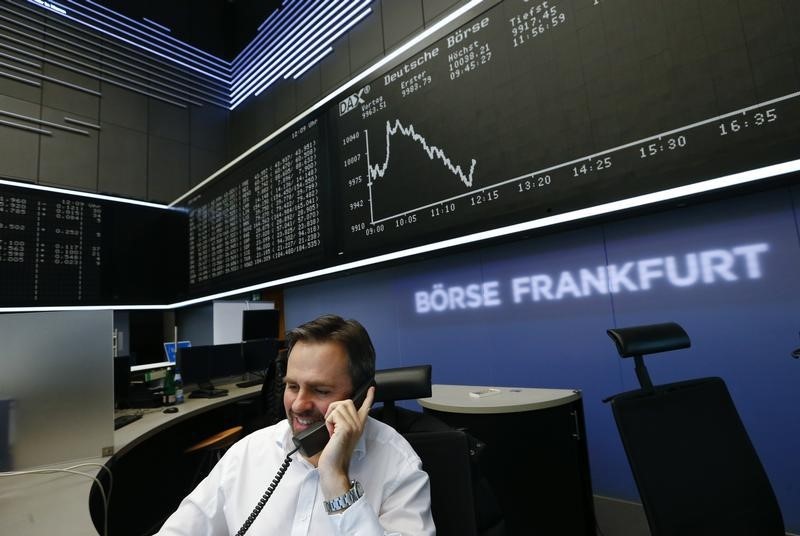Street Calls of the Week
By Geoffrey Smith
Investing.com -- Europe’s stock markets are on course to end the week at their highest levels in eight months, supported by the still-elusive prospect of a trade deal between China and the U.S., and by confidence that a disruptive Brexit can still be avoided.
But trading is thin and there are few big moves to report, with most participants content to sit and wait for the U.S. employment report at 08.30 AM ET (12:30 GMT).
After the first hour of trading in Europe, the benchmark Stoxx Europe 600 was up 0.1% at 388.26, while the FTSE 100 was up 0.2% and Germany’s Dax was effectively unchanged.
The Dax had traded over 12,000 for the first time since October on Thursday, pulled upwards by hopes that the two big external risks to its export-sensitive economy would soon clear. However, better-than-expected industrial production data for February, published earlier Friday, have been unable to push it any higher.
The 0.8% rise in monthly output was overwhelmingly due to construction, which offers some evidence for the argument that domestic demand is strong enough to ride out the current rough patch for the export sector. However, the German economy has rarely been able to grow strongly in the past without a big contribution from its manufacturers, and their output slid another 0.2% last month.
“German data continues to puzzle,” Oxford Economics analyst Oliver Rakau said via Twitter. “Yesterday, horrendous factory orders indicated that tumbling external demand could push industry into recession. But today’s industrial production numbers support our view that the economy is in for a very solid Q1.”
In London, stocks continue to be in a holding pattern after Prime Minister Theresa May asked the EU for a further short extension of the deadline for the U.K. to leave the European Union to June 30, while she and opposition leader Jeremy Corbyn continue talks on finding a cross-party alternative to her three-times defeated Withdrawal Agreement.
It's not clear whether the EU will accept the latest proposal, given that it has insisted that the U.K. take part in European parliamentary elections in May if it is still a member of the union. May said the country would prepare to take part in the elections, while reserving the right to cancel them if parliament can approve an alternative course in the meantime.
